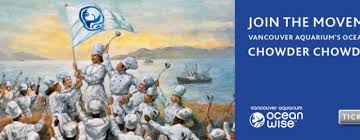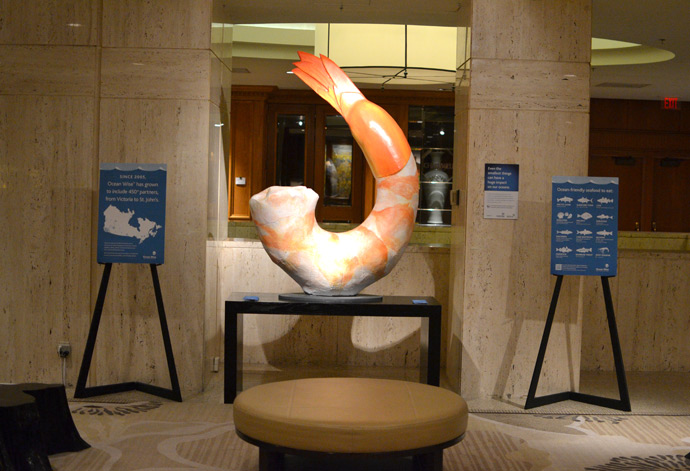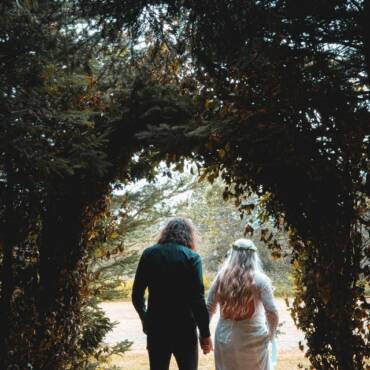In the event industry we all want to give our guests an outstanding experience and we all know that one of the most memorable elements is a fabulous meal. Seafood is always a hit but we need to step back and think about where it’s coming from and the long term effect that our consumption has on future fish stocks in the future. Many fisheries around the world have been depleted to a level that they may never recover from. It is estimated that 90% of all the large, predatory fish have already disappeared. Scientists now predict that by 2048 there will be a total collapse of fishing worldwide.
Do we sit back and let this happen? No. The only solution to return from the brink of disaster is to begin consuming seafood in a sustainable manner.
Sustainable seafood can be defined as species that are caught or farmed in a way that ensures the long-term health and stability of that species, as well as the greater marine ecosystem.
The issues
- Over fishing: Overfishing and consumption of seafood has doubled worldwide since the 1970’s and we are now harvesting approximately 130 million tons of seafood a year. With only 10% of our predatory fish left it will not take long to deplete the few fish stocks that remain.
- Bycatch:, Bycatch consists of undersized, unmarketable or endangered species that cannot be sold. It is estimated that 25% of fish caught in commercial fisheries is bycatch and these bycatch fish are discarded.
- Habitat Damage: Some types of fishing and farming practices can damage important habitats such as spawning, nursery, breeding and sheltering areas. Many fish find it difficult to overcome these obstacles and are unable to survive let alone thrive.
What can fisheries do?
- Fishing techniques: There are a number of techniques that have a high bycatch such as trawling, dredging and pelagic long lining. These techniques adversely affect species such as shrimp, wild shellfish, ground fish as well as large fish such as mahi mahi and swordfish. The solution is to use more sustainable techniques such as trolling, hook and line, pots and traps.
- Sustainable aquaculture: Shellfish such as scallops, mussels, clams and oysters can be are farmed on lines or trays suspended from rafts. Another good alternative is a closed style farms for species such as rainbow trout, catfish, sturgeon and arctic char.
The Vancouver Aquarium has developed the Ocean Wise conservation program. Introduced in 2005 the Ocean Wise program has grown to include 450 participating members, for a total of over 3,100 locations. Included in this list are restaurants, suppliers, culinary schools, an educational institute, a sports/entertainment arena and many catering companies across Canada. All of these participants have committed to providing ocean friendly alternatives to their customers. Though this program started here in Vancouver it has grown to across Canada. The participants in this program are permitted to use the ocean wise logo on their menus, advertising and signage.
To help the restaurant and event industry embrace this program there have been a number of promotional events held at the local level across Canada. November is Ocean Wise month and there are two main events here in Vancouver, the Toast of the Coast that was held on October 20th and the Chowder Chowdown On November 21st. In addition there are some smaller events planned with BC wineries.
- The Toast the Coast event held on October 20th featured BC Ocean Wise participating restaurants and venues. Ocean Wise dishes were paired with award winning BC wines. To keep the whole event safe for drivers, the Vancouver Trolley Company ran a shuttle to and from the Waterfront station all night.

- The Chowder Chowdown. This is the sixth annual competition where twelve of Vancouver’s top Chefs compete to make the best sustainable Chowder. These Chowders will be paired with a selection of local craft beers.

As event professionals we need to be aware of the effects that our menus can have on our Oceans. When planning an event meet with the Venue and discuss their purchasing practices and see if they are Ocean Wise. When choosing an outside caterer look for companies that have become partners in the program, such as Culinary Capers here in Vancouver. http://www.oceanwise.ca/partners_catering If you are working with a venue that does not belong to the Ocean Wise program you can insure still that your menu choices feature sustainable choices.
If you are planning an event in the United States they also have a seafood sustainable program started by the Monterey Bay Aquarium called seafood watch. http://www.montereybayaquarium.org/cr/seafoodwatch.aspx
Chef Alexandra Gaponovitch of the Calphalon Culinary Center 5“I love exciting challenges and I love that this one is for a good cause,” she says. “It’s critical to our well-being and oceans that we understand our impact on the environment, because otherwise, in the future, we might not have certain seafood choices that we have today.”
“Every Time we buy or consume seafood, we have the power to be part of the solution, “says Mike McDermind, Vancouver Aquarium’s Ocean Wise partner relations manager. “Overfishing represents the greatest threat facing our oceans today, but its something that all of us have the ability to change.”
Winnipeg Free Press March 2013
http://www.winnipegfreepress.com/breakingnews/hook-lies-and-sinker-200179191.html
Vancouver is Awesome June 2013
For more information visit the Vancouver Aquarium’s ocean wise web site
http://www.oceanwise.ca/about/sustainable-seafood






Add Comment